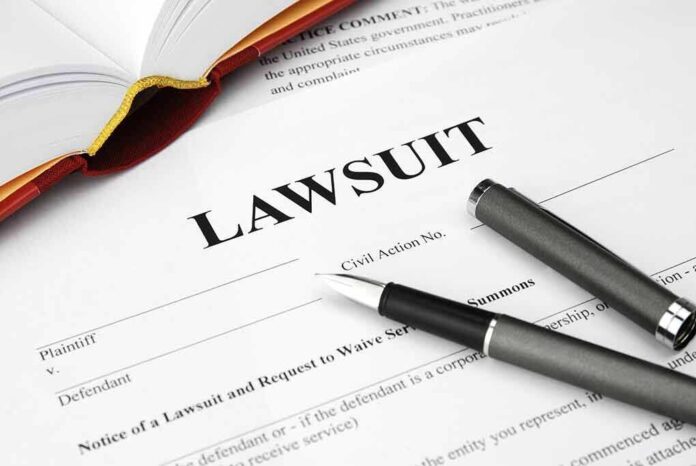
ACLU fights to strip away religious freedom in West Virginia by challenging Governor Morrisey’s vaccine exemption order that allows parents to opt-out of school vaccination requirements based on sincere religious beliefs.
Key Takeaways
- The ACLU has filed a lawsuit against West Virginia over Governor Patrick Morrisey’s executive order allowing religious exemptions for mandatory school vaccinations.
- Governor Morrisey issued the directive in January, permitting families to claim religious objections to vaccines without legislative approval.
- The ACLU argues the governor overstepped his authority by unilaterally changing policy after the legislature rejected similar exemptions.
- The lawsuit represents parents concerned about health risks to immunocompromised children.
- West Virginia was previously one of only five states not allowing non-medical vaccine exemptions.
ACLU’s Attack on Religious Liberty
The American Civil Liberties Union (ACLU) of West Virginia and Mountain State Justice have launched a legal assault on religious freedom by filing a lawsuit to block Governor Patrick Morrisey’s executive order allowing religious exemptions for school vaccination requirements. The lawsuit, filed in Kanawha County Circuit Court and assigned to Judge Kenneth Ballard, aims to force all West Virginia families to vaccinate their children regardless of religious objections. This controversial move by the ACLU directly challenges the religious liberties of parents who have sincere faith-based concerns about certain vaccines required for school attendance.
The lawsuit was filed on behalf of two parents, Dr. Joshua Hess, a pediatric hematologist and oncologist with an immunocompromised child, and Marisa Jackson, who has a child susceptible to illness. Both parents actively opposed non-medical exemptions when the issue was previously debated in the state legislature. Their position aligns with the ACLU’s argument that the governor lacks the authority to create vaccine exemptions that the legislature specifically declined to establish, regardless of religious considerations.
Gov. Patrick Morrisey's executive order permitting religious exemptions for vaccines is being challenged in court. https://t.co/RtrxOilWuA
— Eyewitness News (@wchs8fox11) May 23, 2025
Governor Morrisey’s Defense of Religious Freedom
Governor Morrisey’s January directive instructed health officials to permit religious exemptions when families sign a document stating their objections. The governor has firmly defended his order as necessary to protect constitutional religious liberties, arguing that forcing vaccination despite sincere religious objections violates both the U.S. and West Virginia Constitutions. When faced with the ACLU’s challenge, Morrisey remained steadfast, declaring he would not rescind his order and emphasizing the importance of protecting religious rights in public education.
“Mandatory vaccination requirements that do not recognize religious objections substantially burdens the free exercise of religion in violation of the inherent religious liberties guaranteed by the Constitutions of the United States and West Virginia,” said Patrick Morrisey, Governor of West Virginia.
The governor further emphasized that his directive would ensure that the religious rights of public-school students are protected and that those students are not denied access to public education because of their religious objections to compulsory vaccination. This position aligns with the Equal Protection for Religion Act, passed by the state legislature in 2023, which states that no state action may burden religious exercise unless it serves a compelling government interest and is the least restrictive means of furthering that interest.
Why is the ACLU suing over vaccine exemptions—and is it really just about executive power? The latest legal clash in West Virginia blends politics, religion, and public health. Read what’s behind the lawsuit:https://t.co/dCoMCavPHF
— Religious Liberty – ReligiousLiberty.TV (@RelLibertyTV) May 24, 2025
Constitutional Question of Authority
At the heart of this legal battle is the question of whether the governor has the authority to create religious exemptions to laws passed by the legislature. The ACLU argues that state law only allows medical exemptions, which require a doctor’s certification of a contraindication, and that the governor cannot unilaterally override legislative acts. This stance reveals the ACLU’s willingness to sacrifice religious liberties when they conflict with its preferred public health policies, despite the organization’s historical claims of defending constitutional rights.
“Governors do not rule by decree,” said Aubrey Sparks, Legal Director at ACLU of West Virginia.
The ACLU seeks a court order to ensure compliance with state law and prevent exemptions they claim conflict with existing statute. Prior to Governor Morrisey’s directive, West Virginia was one of only five states not allowing nonmedical vaccine exemptions, placing it in a small minority of states that denied parents religious freedom in this area. The state law mandates vaccination against several diseases for school attendance, with no consideration for religious beliefs—a position that many conservatives view as an overreach of government power into parental rights and religious liberty.
Implications for Parental Rights
This case represents a critical battleground in the ongoing struggle between government control and parental rights. While the ACLU frames their position as protecting vulnerable children, they simultaneously advocate for removing parents’ rights to make decisions based on sincere religious convictions. The lawsuit effectively asks the court to force West Virginia families to choose between their religious beliefs and their children’s education—a false dichotomy that undermines fundamental American freedoms.
“Parents should be able to know their child will be safe when they send them off to school,” said Sarah Brown, MSJ Executive Director.
The outcome of this lawsuit will have far-reaching implications for religious liberty across West Virginia and potentially beyond. If the court sides with the ACLU, it would deal a significant blow to religious freedom and parental rights, forcing families to violate their religious beliefs to access public education. Conversely, if Governor Morrisey’s order is upheld, it would affirm that religious liberty remains a fundamental right that cannot be casually dismissed by legislative oversight or administrative convenience.












